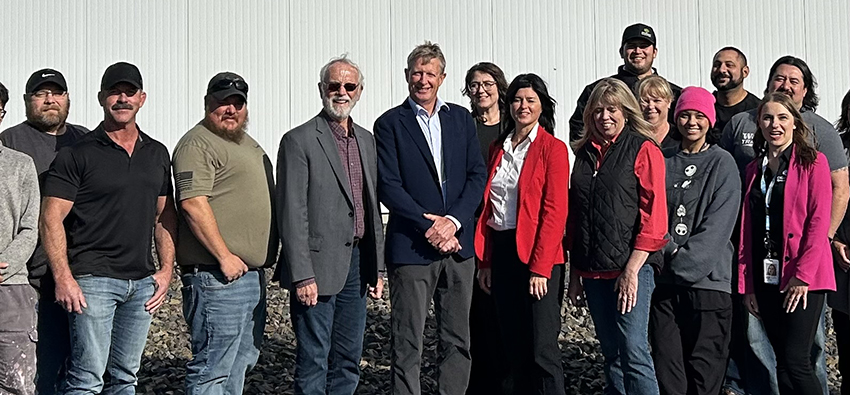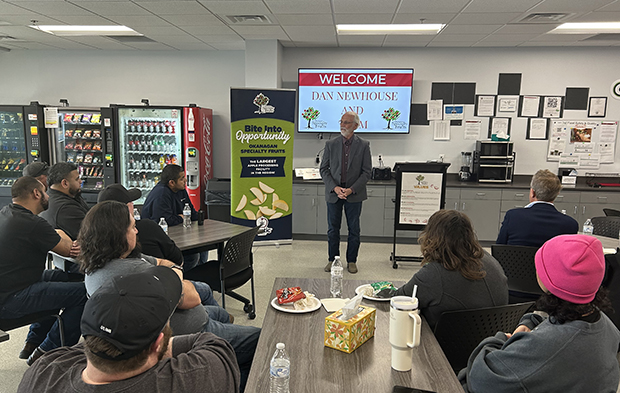Biotech apples designed to last longer, taste great, and make superior cider were the stars when Rep. Dan Newhouse (R-WA) toured Okanagan Specialty Fruits’ processing facility in Moses Lake, Washington.
“It’s really exciting. The products they’re producing, the way they’re doing it, have tremendous potential for the apple industry,” Rep. Newhouse said.
As a member of the bipartisan Congressional Food Recovery Caucus, Rep. Newhouse, who just won reelection, seeks to promote legislation that helps strengthen food supply by eliminating waste. His Oct. 25 tour was organized by the Biotechnology Innovation Organization (BIO), as part of their ongoing work to help lawmakers understand the benefits of biotech for agriculture, food supply, and the environment.
Okanagan Specialty Fruits, a member of BIO, produces Arctic® apples, which have been designed to stay fresh longer through an innovation that blocks the enzyme called polyphenol oxidase (PPO). When someone bites or cuts into an apple, it begins producing PPO, which causes the apple to brown. Using only genes from apples, Okanagan Specialty Fruit figured out how to switch off the gene that produces PPO.
The resulting Arctic® apple keeps for 28 days, even after slicing or chopping, which means it can be sold pre-cut in packages that are convenient for snackers and an economical timesaver for those in the food service industry.
Because they stay fresh longer and are not subject to the discoloration that makes people throw out apples prematurely, they prevent food waste that weakens our food supply chain and contributes an estimated 8% to greenhouse gas emissions.
Arctic® apples also taste great, as Rep. Newhouse discovered. The congressman took part in a cider tasting and said he was a convert.
“I never really was an apple cider fan,” Rep. Newhouse said. “Never found one that was very good. These are very tasty.”
How science can enable food security
Humans have been improving apples through cross-breeding for thousands of years. Using genetics, Okanagan Specialty Fruits has been able to achieve dramatic improvements in apples very rapidly, and they plan to do more.
“The important thing about our company is that we continue to do the science, and have a pretty large science team,” CEO Neal Carter said. “Apple genetics, we’re continuing to advance that. A big platform for our future is really in disease resistance, things like fire blight resistance and bringing forward apples that will basically be able to defend themselves against those diseases. We’re not finished yet.”
The innovative approach of Okanagan Specialty Fruits was presented during an Oct. 29 BIO Ag and Environment Perspectives event, part of a storytelling series organized to highlight biotech innovations and the solutions they offer. Okanagan’s Sarah Evanega, V.P. of Business Development, joined Jason Wilson, Senior V.P., Strategic Partnerships for the nonprofit Partnership for a Healthier America, to discuss pressing food challenges facing the U.S., including nutrition, food accessibility, and diet quality.
The opportunity to present the work of Okanagan Specialty Fruits to the public, and to legislators who can pass laws supporting biotech, is a benefit for the company and the industry, according to Carter.
“We are grateful for the support of BIO in engaging our congressional representatives, as well as their continued advocacy for the interests of food and ag biotechnology, both locally and in DC,” Carter said.





